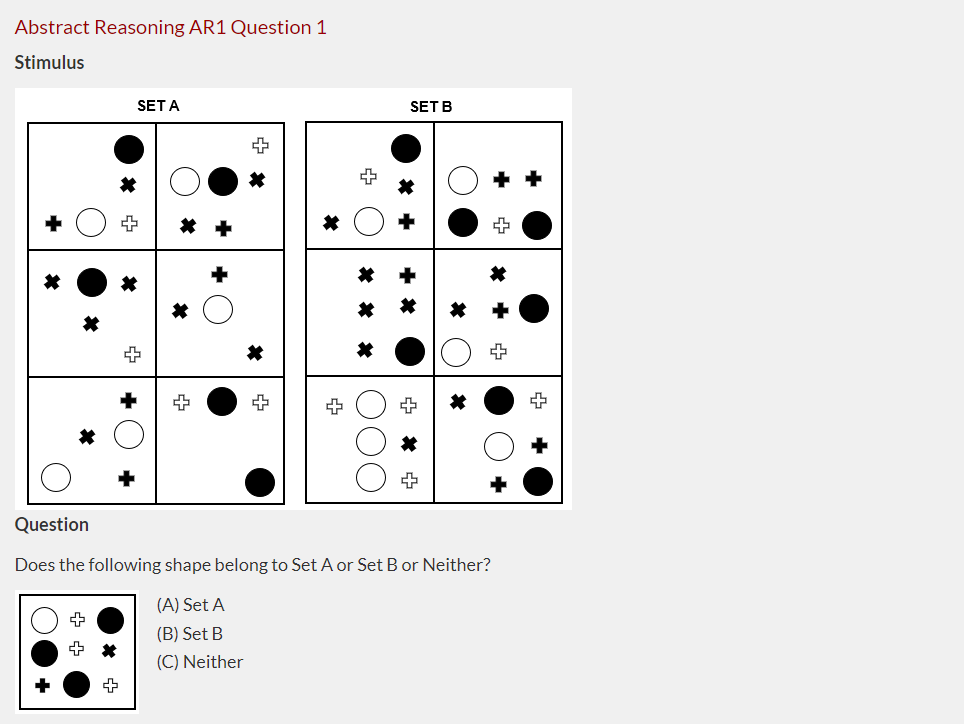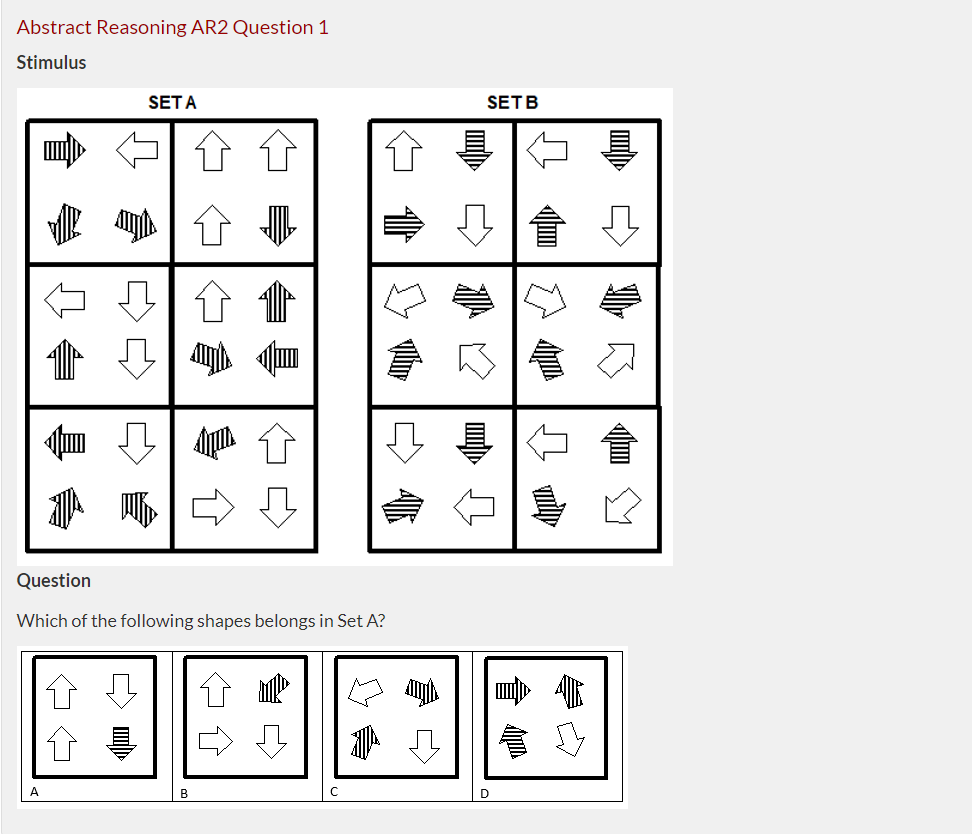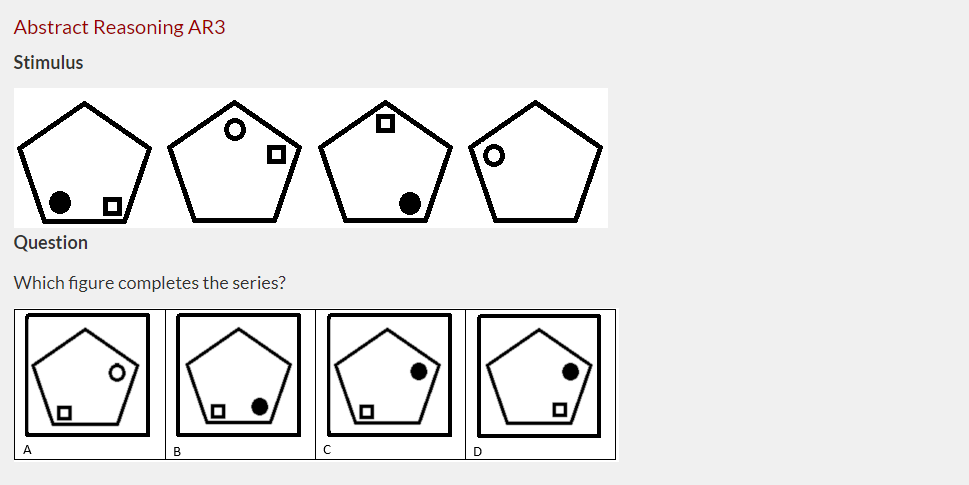Abstract Reasoning within the UCAT tests key skills in visual pattern recognition and efficient application of these patterns to reach conclusions. Shape-based question stems are presented in various formats and your goal is to identify the key components, eliminate any distracting shapes, and use your hypotheses to answer each question. These skills are used every day in medical practice and help develop skills in logic and reasoning in contexts without words or numbers.
An In depth Breakdown
The Abstract Reasoning UCAT test has four types of questions. Type 1 and Type 2 questions come in sets of five questions for each question stem, while Type 3 and Type 4 feature one question per stem.
For all question types, the aim is to identify a common trend or pattern which each set within the provided stem must follow. This pattern may relate to any property related to the given shapes, including the number of shapes, size, orientation, location or colour. Once a hypothesis is formed, your goal is then to either decide which set a given shape belongs to, or which shape belongs to a certain set.
Type 1 – Choosing the Set
Type 1 provide UCAT students with two sets (Set A and Set B) of reference drawings and a single test drawing. Each set contains six boxes with a different collection of shapes and students are asked whether the test drawing belongs to Set A, Set B, or Neither. Type 1 questions come in sets of five and generally make up the first 45 questions of the AR subtest. This means the same reference drawings are used in Set A and Set B for a set of five questions, with a different test drawing in each question.

Type 2 – Categorising the Set
Similar to question Type 1, Type 2 provides two sets (Set A and Set B) of reference drawings are provided. Each set has six boxes with different collections of shapes. This time, the student is asked to pick which of four answer options belongs to Set A or Set B. There are up to five Type 2 questions in the AR subtest.

Type 3 – Next in Series
Type 3 questions provide a series of four boxes with different drawings in them. The student is asked which one of four possible boxes of shapes completes the series. There are up to five Type 3 questions, which are stand-alone.

Type 4 – Analogies
An incomplete pattern is presented: “A is to B as C is to?” and the students are required to pick one of four answer options to complete the analogy. There are up to five Type 4 questions, and they are stand-alone.

Learn how best to spot the pattern
The key to efficiency and accuracy in abstract reasoning is to have a consistent and reliable strategy which you can apply to each question. You should always ask yourself a certain set of questions as you analyse the stem:
- Is there a colour pattern?
- Is the pattern the number of shapes?
- Is the pattern the types of shapes (e.g. all rectangles, all stars)?
- Does the pattern have to do with the size of shapes (e.g. three big, one small shape)?
- Is there symmetry in each panel of the set?
- Is there a ratio of shapes (e.g. two black circles for every square)?
We recommend using our bank of UCAT Practice questions and tests to practice Abstract Reasoning questions regularly and as often as you need, as repetition will help you identify these common patterns quickly. Our partnership with Medify also gives you a Full Season Pass, in addition to access to our own ACE HSC question bank for thousands of example questions to practice on.
Practice under time pressure
Once you’ve got an understanding of how to best identify patterns in Abstract Reasoning questions, practising under exam conditions will allow you to understand how best to split your time up on each question. Consistent allocation of time per question will allow you to gauge your performance and give you ‘checkpoints’ on your progress through each subsection. Don’t get trapped on one question you can’t answer; marking problem questions and coming back to them is the best way to maximise your time.
ACE HSC offers fortnightly Trial Exams to practise held under exam conditions, letting you as well as track your performance against other candidates in the ACE HSC cohort. Alongside this, you also get access to specialist support from some of the best and most experienced tutors in NSW to help find the most effective strategy for you.
Need more tips?
If you want to fine tune your UCAT skills and get better at Abstract Reasoning, we are here to help! Call ACE HSC on (02) 9874 7045, email us or make an enquiry


